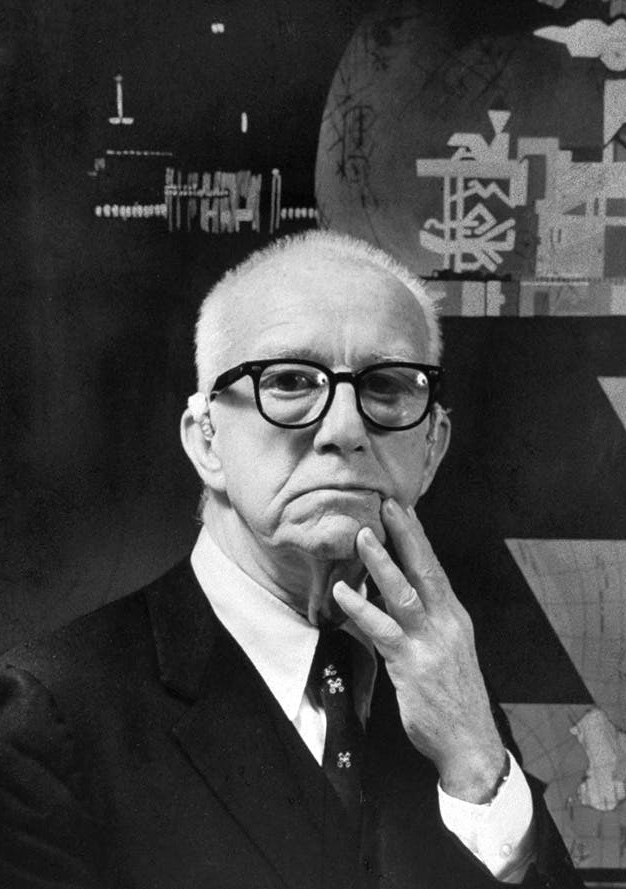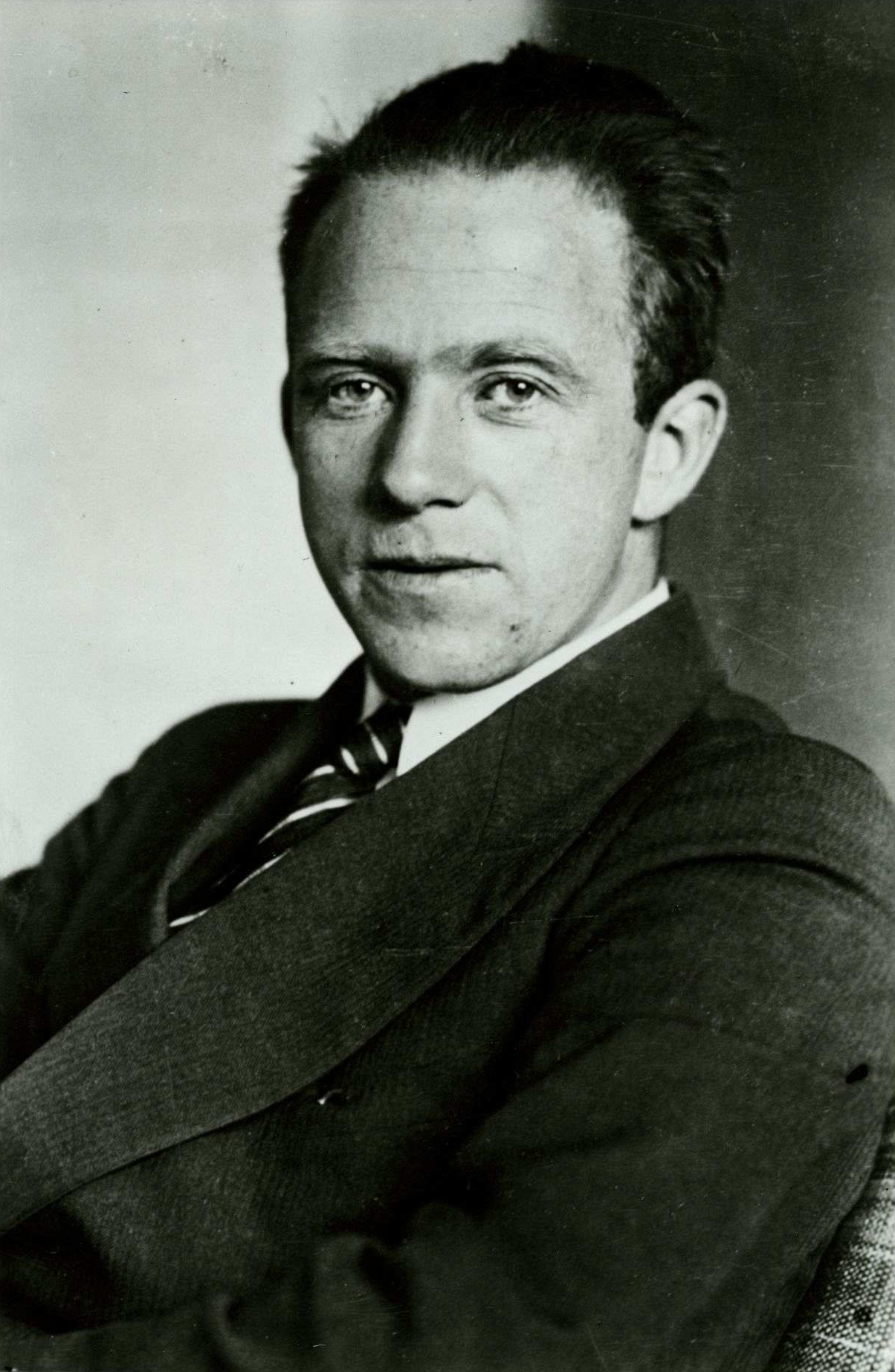Difference between revisions of "Main Page"
m |
m |
||
| Line 1: | Line 1: | ||
<div class="row"> | <div class="row"> | ||
| − | <div class="col-md-3"><h2> | + | <div class="col-md-3"><h2>Introducing knowledge federation</h2></div> |
| − | <div class="col-md- | + | <div class="col-md-6"><h3>Our discovery</h3> |
| + | <p>"If I have seen further," Isaac Newton famously declared, "it is by standing on the shoulders of giants." What motivates our initiative is a discovery. We did not discover that the best insights of our best minds were drowning in an ocean of glut. [[Vannevar Bush]], a [[giants|<em>giant</em>]], saw that already seven decades ago. He urged the scientists to focus on this disturbing trend and find a remedy. But needless to say, this too drowned in the ocean of glut.</p> | ||
| + | <p>What we <em>did</em> find out, when we began to develop and apply [[knowledge federation|<em>knowledge federation</em>]] as a remedial <em>praxis</em>, was that now just as in Newton's time, the insights of [[giants|<em>giants</em>]] put together compose a whole new approach to knowledge.</p> | ||
| + | <p>And that this new approach to knowledge, just as the case was in Newton's time, naturally leads to sweeping changes in the ways in which the core issues – the creation of truth and meaning, democracy and power, technological innovation, the pursuit of happiness or wellbeing, religion... – are understood and handled.</div> | ||
| + | <div class="col-md-3 round-images"> [[File:Newton.jpg]] <br><small><center>[[Isaac Newton]]</center></small></div> | ||
| + | </div> | ||
| + | <div class="row"> | ||
| + | <div class="col-md-3"></div> | ||
| + | <div class="col-md-6"><h3>Our proposal</h3> | ||
| + | <p>“You never change things by fighting the existing reality", observed Buckminster Fuller. "To change something, build a new model that makes the existing model obsolete.” So we built [[knowledge federation|<em>knowledge federation</em>]] as a model or a [[prototypes|<em>prototype</em>]] of a whole new way to create and use knowledge.</p> | ||
| + | <p>[[knowledge federation|<em>Knowledge federation</em>]] is both a way of handling knowledge, or technically a [[paradigm|<em>paradigm</em>]], and an academic institution that develops it as a <em>praxis</em> (informed practice), or technically a [[transdiscipline|<em>transdiscipline</em>]]. </p> | ||
| + | <p>The issue that is being proactively problematized on these pages is the way we handle a most precious resource – human creativity (or insight, ingenuity, capacity to envision and induce change...) and its fruits accumulated through the ages. And at the point in our history where we may need to depend on it more than we ever did! Considering the importance of this issue, we spared no effort in developing and describing a complete proof of concept; and setting the stage for its academic and real-life deployment and scaling.</p> | ||
| + | <p>By constructing this model, we do not aim to give conclusive answers. Our goal is indeed much higher – it is <em>to open up a creative frontier</em> where the way knowledge is created and handled is brought into focus, and continuously recreated and improved.</p> | ||
| + | </div> | ||
| + | <div class="col-md-3 round-images"> [[File:Fuller.jpg]] <br><small><center>[[R. Buckminster Fuller]]</center></small></div> | ||
</div> | </div> | ||
<div class="row"> | <div class="row"> | ||
<div class="col-md-3"></div> | <div class="col-md-3"></div> | ||
| + | <div class="col-md-7"> | ||
| + | <h3>Knowledge federation is just knowledge creation</h3> | ||
| + | <p>As our logo might suggest, the purpose of [[knowledge federation|<em>knowledge federation</em>]] is to 'connect the dots' – combine disparate pieces of information and other knowledge resources into higher-level units of meaning. The meaning we assign to this keyword is similar as in political federation, where smaller units unite to achieve a shared purpose, such as greater visibility and impact.</p> | ||
| + | <p>One might say that what we are calling [[knowledge federation|<em>knowledge federation</em>]] is just what we normally do with information to turn it into knowledge. You may have an idea in mind – but can you say that you really know it, before you have checked if it's consistent with your other ideas? And with the ideas of others? And even then – can you say that your idea is ''known'' before other people have integrated it with <em>their</em> ideas?</p> | ||
| + | <p>Science too federates knowledge. But science does that in its own peculiar way – by describing the mechanisms of nature, and explaining the observable phenomena as their consequences.</p> | ||
| + | <p>Why do we then reclaim the status of an academic field, and even of a new creative frontier, to this everyday human activity? We justify our proposal by three disruptive changes that developed during the past century: | ||
| + | <ul> | ||
| + | <li>The emergence of fundamental insights in science in philosophy, which radically challenged the assumptions based on which our earlier ways to handle knowledge developed</li> | ||
| + | <li>The invention and the global deployment of networked digital media, which, as we shall see, <em>require</em> that we reinvent also the processes and procedures by which knowledge is created and shared and applied</li> | ||
| + | <li>The profound changes in the nature of our society and its condition – pointed to by various keywords such as "post-traditional" and "post-industrial" society, "global issues", "world problematique" and "anthropocene" – which now put new requirements on our handling of knowledge, and even make them urgent.</li> | ||
| + | </ul> </p> | ||
| + | </div></div> | ||
| + | |||
| + | <div class="row"> | ||
| + | <div class="col-md-3"><h2>See</h2></div> | ||
<div class="col-md-6"> | <div class="col-md-6"> | ||
| − | <h3> | + | <h3>Federation through Images</h3> |
<p>As [[Werner Heisenberg]] testified, a disruptive change has taken place in the 20th century’s science and philosophy. Leading scientists saw that what they were witnessing was in effect a rigorous disproof of some of the fundamental assumptions based on which the whole enterprise of science developed. More than a half-century has past since those insights were reported. What hinders us from adjusting our academic ethos accordingly? </p></div> | <p>As [[Werner Heisenberg]] testified, a disruptive change has taken place in the 20th century’s science and philosophy. Leading scientists saw that what they were witnessing was in effect a rigorous disproof of some of the fundamental assumptions based on which the whole enterprise of science developed. More than a half-century has past since those insights were reported. What hinders us from adjusting our academic ethos accordingly? </p></div> | ||
<div class="col-md-3 round-images"> [[File:Heisenberg.jpg]] <br><small><center>[[Werner Heisenberg]]</center></small></div> | <div class="col-md-3 round-images"> [[File:Heisenberg.jpg]] <br><small><center>[[Werner Heisenberg]]</center></small></div> | ||
</div> | </div> | ||
| + | <!-- | ||
<div class="row"> | <div class="row"> | ||
<div class="col-md-3"></div> | <div class="col-md-3"></div> | ||
| Line 96: | Line 126: | ||
<p>“You never change things by fighting the existing reality", observed Buckminster Fuller. "To change something, build a new model that makes the existing model obsolete.” So we built [[knowledge federation|<em>knowledge federation</em>]] as a model or a [[prototypes|<em>prototype</em>]] of a new way to handle knowledge – as it might be instrumental in revolutionizing our condition.</p> | <p>“You never change things by fighting the existing reality", observed Buckminster Fuller. "To change something, build a new model that makes the existing model obsolete.” So we built [[knowledge federation|<em>knowledge federation</em>]] as a model or a [[prototypes|<em>prototype</em>]] of a new way to handle knowledge – as it might be instrumental in revolutionizing our condition.</p> | ||
<p>The issue that is being proactively problematized on these pages is the way we handle a most precious resource – human creativity (or insight, ingenuity, capacity to envision and induce change...) and its fruits accumulated through the ages. And at the point in our history where we may need to depend on it more than we ever did! Considering the importance of this issue, we spared no effort in developing and describing a complete proof of concept; and setting the stage for its academic and real-life deployment and scaling. By constructing this model, we do not aim to give conclusive answers. Our goal is indeed much higher – it is <em>to open up a creative frontier</em> where the way knowledge is created and handled is brought into focus, and continuously recreated and improved. (This is one of the reasons why we decided to open up this website long before it is finished. To a much lesser degree than now of course, this site will remain a construction site forever.)</p> | <p>The issue that is being proactively problematized on these pages is the way we handle a most precious resource – human creativity (or insight, ingenuity, capacity to envision and induce change...) and its fruits accumulated through the ages. And at the point in our history where we may need to depend on it more than we ever did! Considering the importance of this issue, we spared no effort in developing and describing a complete proof of concept; and setting the stage for its academic and real-life deployment and scaling. By constructing this model, we do not aim to give conclusive answers. Our goal is indeed much higher – it is <em>to open up a creative frontier</em> where the way knowledge is created and handled is brought into focus, and continuously recreated and improved. (This is one of the reasons why we decided to open up this website long before it is finished. To a much lesser degree than now of course, this site will remain a construction site forever.)</p> | ||
| − | + | ||
</div> | </div> | ||
<div class="col-md-3 round-images"> [[File:Fuller.jpg]] <br><small><center>[[R. Buckminster Fuller]]</center></small></div> | <div class="col-md-3 round-images"> [[File:Fuller.jpg]] <br><small><center>[[R. Buckminster Fuller]]</center></small></div> | ||
Revision as of 10:25, 24 September 2018
Introducing knowledge federation
Our discovery
"If I have seen further," Isaac Newton famously declared, "it is by standing on the shoulders of giants." What motivates our initiative is a discovery. We did not discover that the best insights of our best minds were drowning in an ocean of glut. Vannevar Bush, a giant, saw that already seven decades ago. He urged the scientists to focus on this disturbing trend and find a remedy. But needless to say, this too drowned in the ocean of glut.
What we did find out, when we began to develop and apply knowledge federation as a remedial praxis, was that now just as in Newton's time, the insights of giants put together compose a whole new approach to knowledge.
And that this new approach to knowledge, just as the case was in Newton's time, naturally leads to sweeping changes in the ways in which the core issues – the creation of truth and meaning, democracy and power, technological innovation, the pursuit of happiness or wellbeing, religion... – are understood and handled.</div>
</div>
Our proposal
<p>“You never change things by fighting the existing reality", observed Buckminster Fuller. "To change something, build a new model that makes the existing model obsolete.” So we built knowledge federation as a model or a prototype of a whole new way to create and use knowledge.</p> <p>Knowledge federation is both a way of handling knowledge, or technically a paradigm, and an academic institution that develops it as a praxis (informed practice), or technically a transdiscipline. </p> <p>The issue that is being proactively problematized on these pages is the way we handle a most precious resource – human creativity (or insight, ingenuity, capacity to envision and induce change...) and its fruits accumulated through the ages. And at the point in our history where we may need to depend on it more than we ever did! Considering the importance of this issue, we spared no effort in developing and describing a complete proof of concept; and setting the stage for its academic and real-life deployment and scaling.</p> <p>By constructing this model, we do not aim to give conclusive answers. Our goal is indeed much higher – it is to open up a creative frontier where the way knowledge is created and handled is brought into focus, and continuously recreated and improved.</p>
Knowledge federation is just knowledge creation
<p>As our logo might suggest, the purpose of knowledge federation is to 'connect the dots' – combine disparate pieces of information and other knowledge resources into higher-level units of meaning. The meaning we assign to this keyword is similar as in political federation, where smaller units unite to achieve a shared purpose, such as greater visibility and impact.</p> <p>One might say that what we are calling knowledge federation is just what we normally do with information to turn it into knowledge. You may have an idea in mind – but can you say that you really know it, before you have checked if it's consistent with your other ideas? And with the ideas of others? And even then – can you say that your idea is known before other people have integrated it with their ideas?</p> <p>Science too federates knowledge. But science does that in its own peculiar way – by describing the mechanisms of nature, and explaining the observable phenomena as their consequences.</p> <p>Why do we then reclaim the status of an academic field, and even of a new creative frontier, to this everyday human activity? We justify our proposal by three disruptive changes that developed during the past century:
- The emergence of fundamental insights in science in philosophy, which radically challenged the assumptions based on which our earlier ways to handle knowledge developed
- The invention and the global deployment of networked digital media, which, as we shall see, require that we reinvent also the processes and procedures by which knowledge is created and shared and applied
- The profound changes in the nature of our society and its condition – pointed to by various keywords such as "post-traditional" and "post-industrial" society, "global issues", "world problematique" and "anthropocene" – which now put new requirements on our handling of knowledge, and even make them urgent.
See
Federation through Images
<p>As Werner Heisenberg testified, a disruptive change has taken place in the 20th century’s science and philosophy. Leading scientists saw that what they were witnessing was in effect a rigorous disproof of some of the fundamental assumptions based on which the whole enterprise of science developed. More than a half-century has past since those insights were reported. What hinders us from adjusting our academic ethos accordingly? </p>Our discovery
<p>"If I have seen further," Isaac Newton famously declared, "it is by standing on the shoulders of giants." What motivates our initiative is a discovery. We did not discover that the best insights of our best minds were drowning in an ocean of glut. Vannevar Bush, a giant, saw that already seven decades ago. He urged the scientists to focus on this disturbing trend and find a remedy. But needless to say, this too drowned in the ocean of glut.</p>
<p>What we did find out, when we began to uncover and put together the best insights of our best minds, was that now just as in Newton's time, they compose a whole new approach to knowledge. We also found out that this approach to knowledge leads to new answers to far-reaching questions – about the nature of truth and meaning; in what way might happiness be successfully pursued; what still impedes our freedom and democracy; what technological innovation may need to be like to benefit us far more than it presently does.</p>Our proposal
<p>“You never change things by fighting the existing reality", observed Buckminster Fuller. "To change something, build a new model that makes the existing model obsolete.” So we built knowledge federation as a model or a prototype of a new way to handle knowledge – as it might be instrumental in revolutionizing our condition.</p> <p>The issue that is being proactively problematized on these pages is the way we handle a most precious resource – human creativity (or insight, ingenuity, capacity to envision and induce change...) and its fruits accumulated through the ages. And at the point in our history where we may need to depend on it more than we ever did! Considering the importance of this issue, we spared no effort in developing and describing a complete proof of concept; and setting the stage for its academic and real-life deployment and scaling. By constructing this model, we do not aim to give conclusive answers. Our goal is indeed much higher – it is to open up a creative frontier where the way knowledge is created and handled is brought into focus, and continuously recreated and improved. (This is one of the reasons why we decided to open up this website long before it is finished. To a much lesser degree than now of course, this site will remain a construction site forever.)</p>
See
Federation through Images
<p>In Federation through Images we trace the foundations and the techniques of a next-generation science-like development.</p>
Federation through Stories
<p>In Federation through Stories we trace the historical roots of a development analogous to Industrial Revolution – of a way to radically increase the effectiveness of human work. </p>
Federation through Applications
<p>In Federation through Applications we present a complete prototype of an emerging academic and societal paradigm, rendered as a portfolio of prototypes.</p>
Federation through Conversations
<p> In Federation through Conversations we focus on a development analogous to the Humanism and the Renaissance – of new views and values that can bring our societal and cultural evolution into sync with our technological one. By positing unconventional views on issues that matter, we ignite public dialogs. And by developing those dialogs, we evolve a collective mind capable of weaving threads of thought into surprising conclusions.</p>Disclaimer
Our claims are all wrong
<p>Donella Meadows talked about systemic leverage points as those places within a complex system "where a small shift in one thing can produce big changes in everything". Among the leverage points, she identified "the mindset or paradigm out of which the goals, rules, feedback structure arise" as the most impactful ones.</p> <p>This sets the stage for the course of action we have undertaken to facilitate. Our goal is to make it possible and perhaps even easy to shift paradigms.</p> <p>Shifting paradigms is a tricky business. It tends to annoy people. And for a good reason, too – a shared paradigm is what enables us to communicate. Anything that challenges our shared paradigm is just plain wrong by definition (that is, as the definitions are in the old and still prevailing paradigm).</p> <p>Our claims (provided that we are making any) are, however, wrong for yet another and more subtle reason. Our goal is not to propose a new way to understand the world. We are not picking up a fight with the opponents of our worldview to have our way prevail. Our ambition is indeed much higher – it is to develop a way to communicate that does not depend on any fixed worldviews and paradigms. Where there are no worldview battles. We want to live in a world where the way we look at the world is continuously changing and evolving. And so what we – most importantly – are aiming at is not a debate but a dialog! We are not inviting you to a worldview contest. We are inviting you to collaborate with us, to work together to make our world and our worldviews pliable and flexible. </p> <p>In this noble effort we are inevitably stuck with the language and manner of expression of the old paradigm (if we want to communicate at all). And so where we might still be saying that something "really is" as we posited, what we really mean is "here's a way of looking – see if you can use it, in addition to your other ways of looking, and see more". </p>
<p>But you should not now conclude that we are sinking into the chaos of relativism, because that's exactly what knowledge federation undertakes to remedy – as we shall see next.</p>We are not saying that our civilization is in trouble
<p>In 2012 (at the Smithsonian in Washington D.C., at 40th anniversary of The Limits to Growth report, which he co-wrote with Donella and a couple of other student colleagues), Dennis Meadows gave a talk whose message is that it is too late for sustainable development. We have gone over the limits, Dennis explained. What we now need to focus on is resilience (avoiding the collapse of our systems, and/or of our civilization as a whole).</p> <p>There are, however, two approaches to resilience. One is to make our systems, and our civilization, more firm and solid. The other one is to make them pliable, so that they may transform themselves under pressure, not break. It is this latter way, "resilience through flexibility", that we have undertaken to enable. </p> <p>Please notice that our initiative is so flexible that it is resilient even to the possibility that there are no global issues, that our civilization is on a stable and secure course and will remain on it forever. Even then – we do still need to communicate! And doesn't the fact that so many of us are living in a worldview where there are no global issues, even after researchers like Dennis Meadows have been blowing their whistles with all their might for decades – already prove our point, that we have all but lost the ability to federate knowledge about the matters that matter?</p>
<p>As this example might illustrate, we don't really need to agree on every detail, to be able to see, beyond reasonable doubt, what it is that we need to do together.</p>We will not change the world
<p>"Never doubt that a small group of thoughtful, committed citizens can change the world; indeed, it's the only thing that ever has", wrote Margaret Mead. You'll find evidence of our thoughtfulness and commitment on these pages.</p> <p>And yet it is clear to us, and should be clear to you too, that we cannot really change the world. The world is not only us – it is all of us together! It includes you too.</p>
<p>So if the world will indeed change, that will be a result of your doing, of your thoughtfulness and commitment!</p>This is not our project
<p>It goes without saying that the paradigm that now so passionately wants to emerge will depend on genuine collaboration. In Norway (this website is hosted at the University of Oslo) there is a word for this – dugnad (pronounced as doognud). A typical dugnad might be organized by the people in a neighborhood on a Saturday afternoon, to gather fallen leaves and branches and do small repairs in the commons – and then share a meal together. We now need the dugnad spirit at the university. And of course also broader. </p> <p>In accordance with our general strategy for social-systemic change, as made concrete in The Game-Changing Game, in the next phase of knowledge federation's evolution the veterans will be practicing what we call the back seat policy. We are 'moving to the back seat', and creating space for new people to take over the steering.</p>





